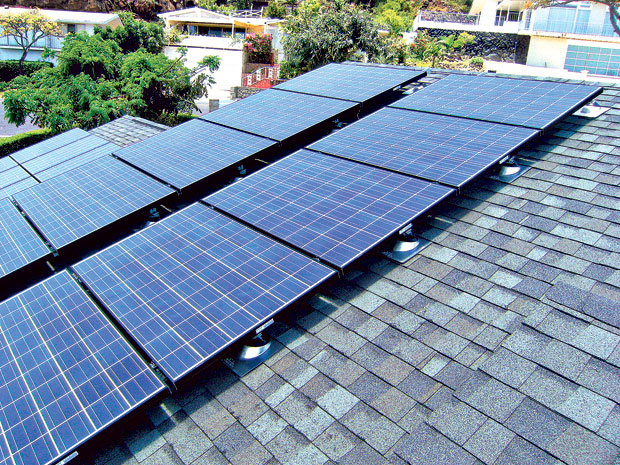New Tests Reveal Issues in Quality
Consumers generally do not understand the issues that arise with photovoltaic (PV) modules and their construction. As a result, there has been a flood of modules that have come on the market claiming to be just as good as, or better, than other ones. Well-known names for other consumer products have also brought products onto the market and consumers assume that they must be good.
The fact is they are not always good, and new extensive testing indicates that the problems tend to surface in around seven to eight years. The new testing is being done to prove the bankability of solar modules and manufacturers’ long-term warranty claims. Pacific Islands Construction wants to keep you informed, and the following is what these new tests are finding that indicate that not all modules are equal:
• New tests indicate that there is a problem called “snail trails.” The phenomenon is so called because of the appearance of dark trails on the modules’ surface causing hot spots and underperformance. More than 25 manufacturers have been found so far to have had this problem. The cause of it has not been fully determined, but likely factors include micro-cracks in cells, cheaper components, weaker frames and poor construction.
• The tests have indicated that many modules seem to have been built to meet only the minimum standards, and these new, more stringent tests can predict the life expectancy of solar modules. Few modules are actually passing these new tests, and this information is being used by financial institutions who are investing in 20 year solar farm projects to protect their investments. The benefit to the consumer is they can also use this information to insure that their investment is a good one.
• The tests are revealing that module construction breakdowns happen in seven to eight years. A serious problem appears to be that the adhesives used in the sandwich construction of glass, cells and the backer breaks down, causing slippage of these components. The resulting problem is moisture entering the construction or electrical breakdown that can lead to electrical shocks or even fires. These new tests are gaining attention, calling for new industry standards that reflect what module manufacturers should be building and protecting us from substandard construction.
As a result of heavy financial losses due to Chinese manufacturers flooding the market with low cost and lower quality products, manufacturers of solar modules are losing millions of dollars. Stock prices of these companies have lost as much as three quarters of their value. It has been said that there is likely to be only about 10 companies worldwide that will survive this market over the next five years with more than half of them being Chinese.

Warranties are sales tools used by companies to convey the false idea that something is guaranteed when it is not. If the company goes out of business, you have no protection for product failure. Many warranties do not cover removal of defective modules or shipping. In the fine print, energy depreciation can also be more than the 20 percent that most manufacturers allude to. Some manufacturers allow up to 3 percent energy loss in the first year. Just remember that the manufacturers are writing these documents to protect themselves, not you.
If you are interested in finding more about these new tests and are considering a PV system for your home, give Pacific Islands Construction a call at 841-7756.
The company is more than just a solar contractor. As a roofing contractor, it understands how to properly seal roof penetrations, protecting your home from leaks and keeping your roof warranty in place. It guarantees your roof will not to leak from our installation for a period of seven years, the longest period the state allows a contractor to promise. Pacific Islands Construction tries to protect its customers from the issues faced by using only the best equipment and installation practices. This month, the company is offering specials on selective systems.
PACIFIC ISLANDS CONSTRUCTION
contact // 841-7756
web // Pacificislandsconstruction.net